When Sanctuaries Become Targets
In five countries, people gathered to worship and were met with bullets, bombs, and bulldozers.
They weren’t in the streets. They weren’t protesting.
They were praying. But their sacred spaces were not safe.
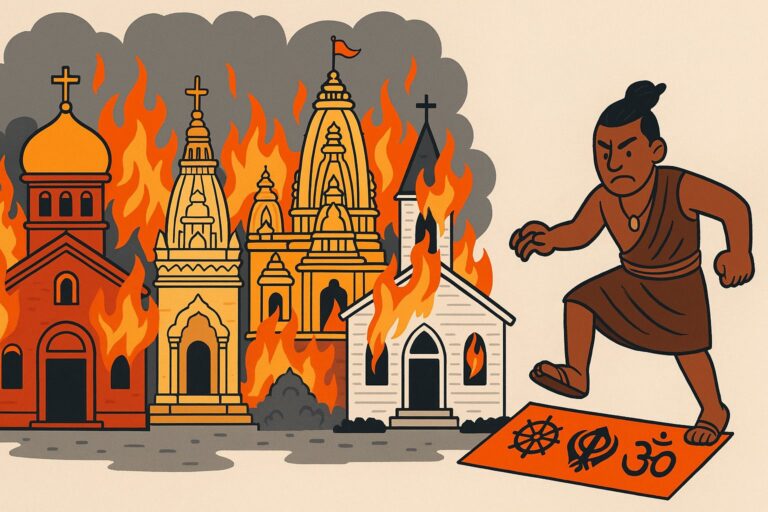
1
Syria: Suicide Bombing Kills 22 Christians in Damascus Church During Worship
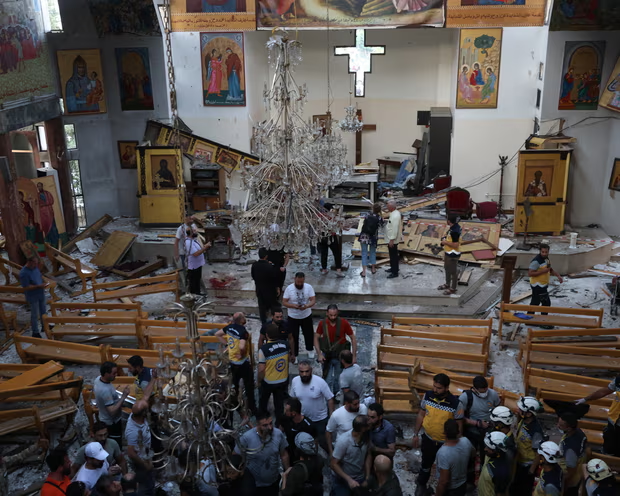
As Syria reels from regime collapse, Christians are once again in the crosshairs.
Last Sunday night, an Islamic State suicide bomber attacked Saint Elias Greek Orthodox Church in Damascus, killing 22 worshippers and injuring 63 during evening prayers.
The attacker entered the packed sanctuary, opened fire, and detonated an explosive vest. A second gunman also shot at worshippers but escaped. Over 350 people were in the church at the time.
Bloodied pews, splintered wood, and the bodies of the faithful now mark one of Syria’s deadliest anti-Christian attacks in years.
It was the first major suicide bombing since Bashar al-Assad’s fall in December, and a chilling signal that IS is using Syria’s political vacuum to regroup and terrorize religious minorities.
2
Sudan: Churches Bombed, Priest Killed as Siege of El Fasher Intensifies
Sudan’s last safe city is no longer safe
The Rapid Support Forces (RSF) has bombed three churches in El Fasher, North Darfur—the Sudanese Episcopal Church, the African Inland Church, and the Roman Catholic Church.
At least five people were killed, including Father Luka Jomo, the parish priest of the Catholic Church, who died of his wounds on June 12. Dozens more were injured.
El Fasher is the last major city in Darfur not under RSF control. It has been under siege since April 2024, despite a UN Security Council resolution demanding the RSF withdraw.
Religious sites—once sanctuaries—are now battlegrounds in a conflict marked by ethnic cleansing, forced displacement, and systematic attacks on civilians. Both RSF and SAF forces have bombed churches, turning places of worship into targets—especially where they shelter vulnerable communities or represent resistance to militant control.
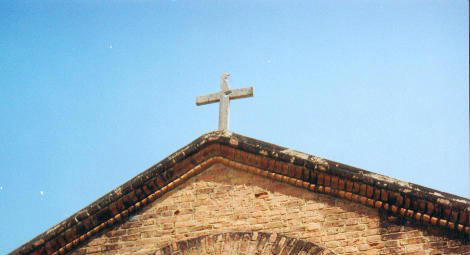
3
Bangladesh: Hindu Jailed and Temple Demolished Amid Rising Anti-Minority Violence
The state didn’t stop the violence. It finished what the mob started.
Two brutal blows struck Bangladesh’s Hindu minority this week.
A Hindu father and son—both barbers—were attacked by a mob after a simple payment dispute spiraled into a false blasphemy accusation. Police didn’t shield them. They arrested them. One officer even addressed the crowd, fanning tensions instead of calming them.
Then in Dhaka, on June 26, authorities demolished the Khilkhet Durga Temple, just two days after it had been threatened and vandalized by a local mob. Bulldozers and soldiers arrived at dawn, flattening a place of worship that had stood for over 50 years—a sacred space for generations of Bengali Hindus.
This wasn’t protection. It was validation. The mob made demands—and the state delivered. These are not isolated events. They are part of a pattern where being a minority means being expendable.
Source: Civil society reports, June 2025
4
Michigan: Armed Man Opens Fire on Church Filled with Families—Stopped by Worshippers
In 2025 America, no house of worship can take safety for granted.
In Wayne, Michigan, a gunman wearing body armor opened fire outside CrossPoint Community Church, where 150 people—including children—were gathered for Sunday worship.
He shot one person and advanced toward the building. But before he could reach the doors, a church member struck him with a pickup truck, and staff members returned fire, killing the gunman on the spot.
Police say the shooter had no connection to the church and appeared to be in the midst of a mental health crisis.
Across the United States, attacks on houses of worship—churches, synagogues, mosques—are no longer unthinkable. Faith communities are installing surveillance, training security teams, and preparing for the unholy reality that worship may come with risk. The sanctuaries are still sacred. But they are no longer safe by default.
https://nytimes.com/2025/06/22/us/shooting-church-wayne-michigan.html
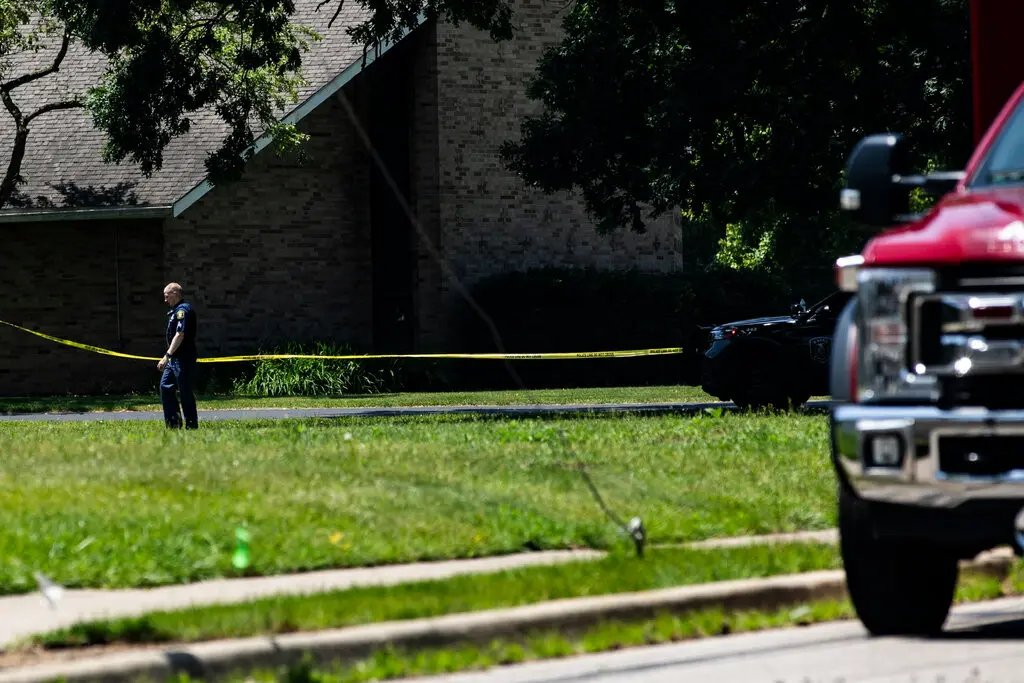
5
New Zealand: Sacred Symbols Trampled as Police Look On
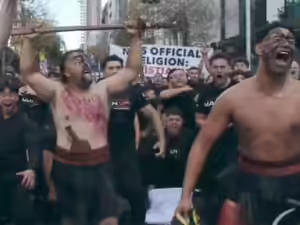
In the heart of Auckland, sacred flags were torn and trampled—while officers stood by.
A known radical leader ripped and stomped on religious flags belonging to Hindu, Sikh, and Buddhist communities, tearing them from peaceful displays outside Auckland Town Hall.
Video shows the man mocking sacred symbols as some cheered and others looked on in shock—including children from the affected communities.
Local faith leaders say the desecration wasn’t just offensive—it was chilling. “It felt like a message,” one Hindu organizer said, “that our faith didn’t belong here.”
No immediate arrests were made, despite the apparent destruction of private property in a public setting under police observation.
Good News Bonus
India: Murder Convict Speaks Out— “There Is No Forceful Conversion”
From a convicted attacker to a defender of truth
Chengu Hansdah, once the youngest among those convicted in the brutal 1999 killing of Australian missionary Graham Staines and his two sons, has made a powerful statement after his release: “There is no forceful conversion.”
Hansdah, who now openly identifies as a Christian, served nine years in prison for his role in the crime and has since experienced a profound change of heart. In a recent interview, he said plainly: “I am happy to be a Christian.”
His words directly challenge the narrative used to justify violence against India’s Christians—that conversions are coerced. Coming from someone once radicalized by that very claim, it is a deeply significant rejection of hate.
In a time of rising fear and misinformation, truth from an unexpected voice is a gift.
